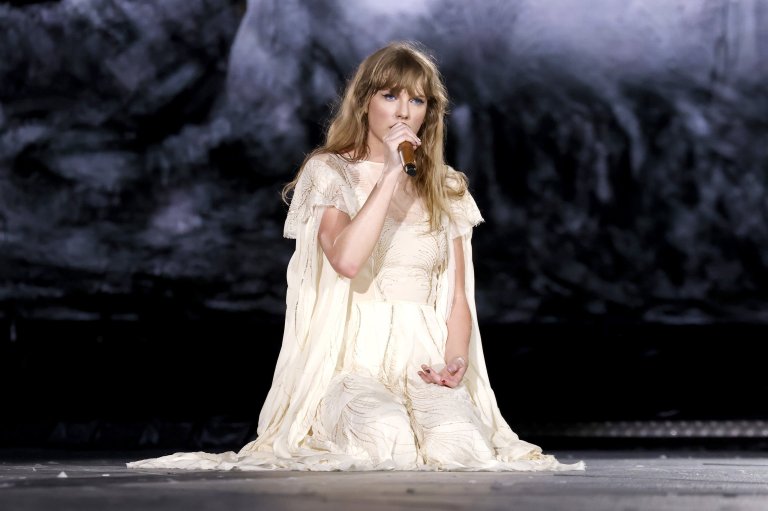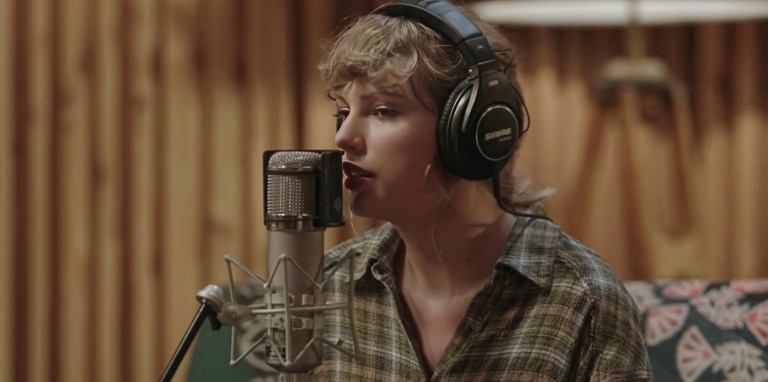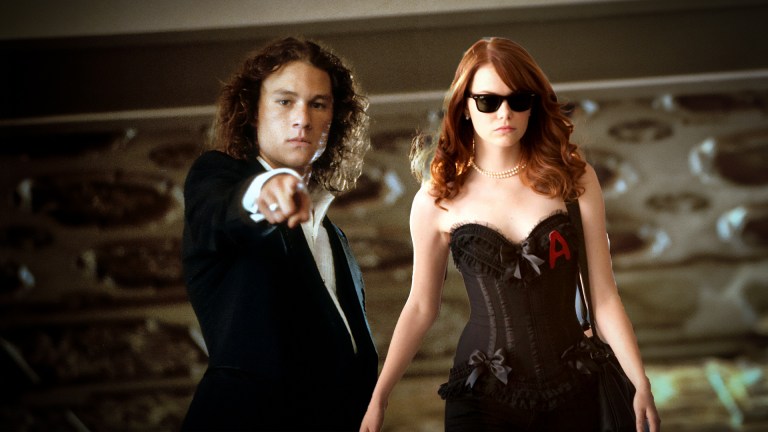Kanye West Is Wrong But Taylor Swift Isn’t Right
And not just because she's a subpar singer who is making loads of money from the occupation of being a pretty white girl in America.
Kanye West’s behavior is troubling, or perhaps more accurately, lately, it’s more troubling than usual. As a struggling fan (someone who struggles to call myself a fan of his), I want to know where his support system is in his latest antics, which include tweeting that Bill Cosby is innocent, and concluding that he made Taylor Swift famous and wants to f*** her in a track in his upcoming album, and claiming that he is $53 million in debt.
For all of West’s misogyny and deeply problematic statements and sentiments, I am going to do the un-American thing here and wonder about this black man’s mental health. There is of course the possibility that this might all be a publicity stunt for his album. Why he would need to do this, and go about it like he has, and for the sake of publicity, is unlikely but still within the realm of possibility. Show business.
Simultaneously, after fighting it for so long, I can openly express that I find Taylor Swift insufferable. And not just because she’s a subpar singer who is making loads of money from the occupation of being a pretty white girl in America. But primarily because Taylor Swift is a profane manifestation of what happens in art when “marketability” outweighs talent. She isn’t the only one, she just happens to be very good at it, and is quite annoying along the way. I’m sure Taylor Swift, the person, is lovely, but as I know few celebrities personally, when I refer to them, I refer to their public personas.
This might be a remnant of internalized misogyny (in before the white feminists get to it first), and personal bias. Or it might be that after years of trying not to, I have to admit that Taylor Swift’s public persona is odious; she is the human form of “trying too hard,” which is probably also what makes her relatable to many of her listeners. But she is colloquially, what some of us might refer to as, “the annoying white girl who doesn’t know when it’s time to leave the party.” Except the party here is fame in popular culture, and she isn’t going anywhere.
There is such a thing as “good taste” and “bad taste” and “good opinions” and “bad opinions,” even in our societal affair with making everything a matter of the subjective. Not a single person is the arbitrator of what is good and bad, and especially so in art. But experience, sense-making, meaning creation, exposure, study, comprehension of nuance versus nonsense, etc., and a whole host of other things are what inform taste and viewpoint.
Admittedly, I’m one of those people who would rather encounter 100 people whose good taste is accounted for, and who respect the work, than know one million people with less than average taste who “like” the work. Any majority isn’t always wrong, indeed. But the majority is not always right. In the age of #branding, this is especially true, and even in spite of the art world’s historic and continuous struggle between creating as a duty for its own sake, and creating for an audience, which may or may not be mutually exclusive endeavors.
All this is to say, after glossing over the supposedly empowering Taylor Swift speech from last night’s Grammys, of which she won Album of The Year, and became the first woman to do so twice, I found the speech decent, albeit coming from the “wrong” person. In summary, the speech (which was indirectly aimed at West), was for “young girls” to focus on the work, and not let people sidetrack them, and not let it get it to them when people take “credit” for their accomplishments. Bravado. I will even put aside my dislike for the Grammys, although full disclosure: I didn’t watch. I just saw the results and read about the highlights and lowlights.
But coming from Swift, the speech loses its inherent power here because the speaker matters – the speaker always matters. And Swift, who is seemingly unaware, and has proved time and again how unaware she is (See: response to Nicki Minaj in the VMA nominations last year), fails to comprehend how the politics and intersections of her identity are aligned with her ability to succeed. Some might even say she is a classic example of white mediocrity, that the Kanye’s and even the Beyoncé’s of the world cannot epitomize, for all their acclamation, and if we’re referring to artists of similar popularity and societal power. (If you have a desire to bring up Adele right now as a defense, don’t bother. Adele’s talent is undeniable.)
West, for all his personal and professional faux pas, is really good at what he does. It’s difficult at present, to say anything more than that, as his entire public figure persona leaves much to be desired, save for the possibility of a real mental health struggle. But strip Kanye West of every last good compliment, and his talent still remains.
Taylor Swift however, creates subpar music for the unconscientious masses, and she is rewarded for it. Yes, I too, find some of her songs “catchy,” but the songs she makes are meant for “hearing,” not “listening.” There is a difference. What Swift doesn’t create is music that has any depth, or produces interesting conversations, or “raises the consciousness of the people.” Again, she’s not the only one. But I sure wish she, and other people like her, would find other ways to be lucrative, than to participate in the desecration of her art form, and the arts entirely. Wishes and horses, I know.
Still, to quote the recently late Alan Rickman, “Talent is an accident of genes, and a responsibility.” Something that perhaps both Swift and West might benefit from pondering, albeit for different reasons. Because creators know or ought to know that art, despite its challenges of perception and value, serves a unique function of the ability to locate and express the pains and pleasures of being alive, which no other entity can replicate.
When creating successfully, you make numerous sacrifices for the work’s purpose – to give life, and to serve. But it is always primarily about the work. Or you may create poorly and live with the fact that your creation is destructive – a distraction and a disservice. The irony of art of course, is that “successfully” and “poorly” don’t always mean what we think it means. ![]()











